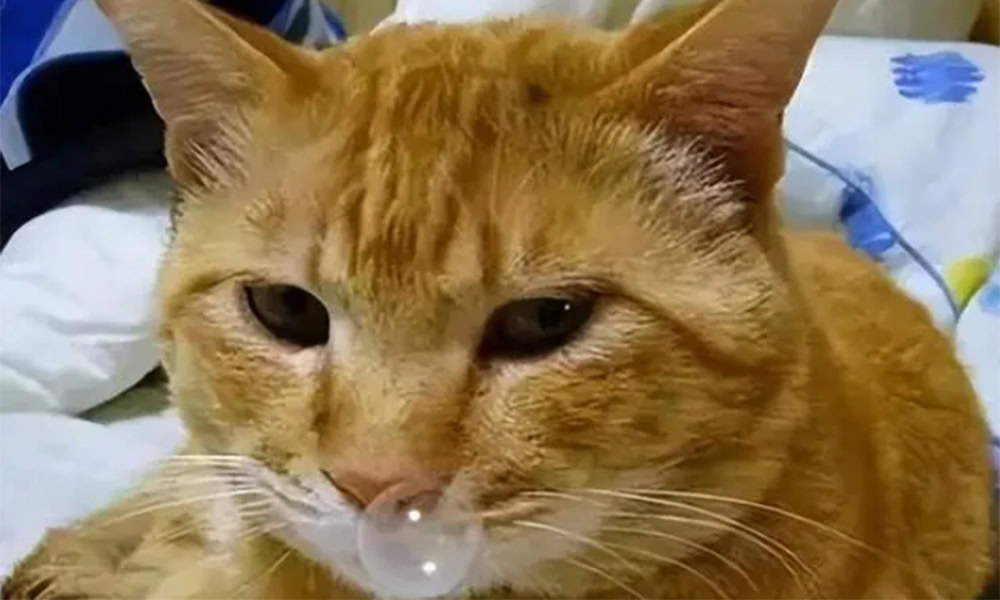How to Help Your Cat Live Longer - Tips for a Healthy and Happy Life
Cats are beloved companions that bring joy to our homes. As responsible pet owners, one of our primary goals is to ensure that our cats lead long, happy, and healthy lives. But how long can cats live, and what can we do to help them live even longer?
How Long Do Cats Live?
he lifespan of a cat can vary based on factors like breed, environment, and overall health. While the average pet cat lives anywhere from 12 to 20 years, with some even reaching their early 20s, several factors influence this range. Here’s a breakdown of typical lifespans for cats in different circumstances:
•Pet Cats: Indoor cats tend to live longer due to the safer environment they are in, with an average lifespan of 12 to 20 years, and some may live even longer. Indoor cats are protected from outdoor dangers like accidents, diseases, and predators.
How Can You Help Your Cat Live Longer?
A cat’s life expectancy is largely influenced by the care it receives throughout its life. Here are some of the most effective ways you can ensure your feline companion enjoys a longer, healthier life:
1. Provide a Balanced Diet
A proper, balanced diet is essential for your cat’s health and longevity. Ensure your cat receives high-quality cat food that provides all the necessary nutrients. While it’s tempting to share food with your pet, avoid giving them human food, as some ingredients can be toxic to cats. Fresh water should always be available, and occasional treats can be provided, but moderation is key.
2. Regular Veterinary Check-ups
Routine vet visits are crucial for early detection of potential health issues. Regular vaccinations, parasite prevention, and dental care are essential parts of maintaining your cat’s well-being. Early diagnosis and treatment can prevent many common cat ailments from becoming serious.
3. Spay or Neuter Your Cat
Spaying or neutering your cat not only helps control the pet population but also reduces the risk of certain health problems, such as uterine cancer in females and prostate issues in males. Additionally, neutered cats tend to have fewer behavioral issues, like roaming or marking territory.
4. Provide Regular Exercise and Mental Stimulation
A healthy weight and an active lifestyle contribute to your cat’s overall health. Playtime and exercise help prevent obesity, maintain joint health, and stimulate your cat’s mind. Interactive toys, scratching posts, and even puzzle feeders can help engage your cat in both physical and mental activities.
5. Maintain a Clean Environment
Cats are meticulous groomers, but they still need help keeping clean. Regularly cleaning your cat’s litter box, providing fresh water, and brushing their fur can help prevent infections and other health issues. Additionally, ensure your cat’s bedding and living space are always clean.
6. Ensure a Safe Indoor Environment
Limiting your cat’s exposure to the dangers of the outside world can significantly increase their lifespan. Keeping your cat indoors helps protect them from traffic accidents, wild animals, diseases, and other hazards. If your cat does go outside, consider providing a secure outdoor enclosure where they can safely enjoy nature.
7. Provide Emotional Care and Attention
Cats thrive on emotional connections with their owners. Spending quality time with your cat, offering affection, and creating a loving home environment contribute to their happiness and well-being. Regular petting, brushing, and playtime strengthen your bond and reduce stress in your cat’s life.
8. Address Health Problems Promptly
Pay close attention to changes in your cat’s behavior or health. If your cat suddenly becomes lethargic, loses appetite, or displays any unusual symptoms, take them to the vet as soon as possible. Early intervention is key to preventing serious conditions from developing.
Conclusion
By following these simple, yet essential, tips, you can significantly increase the likelihood of your cat living a long, healthy, and happy life. With the right diet, regular vet visits, a safe environment, and plenty of love, your feline companion can enjoy many happy years with you by their side. Remember, the care and attention you provide today will have a lasting impact on your cat’s future health and happiness.


